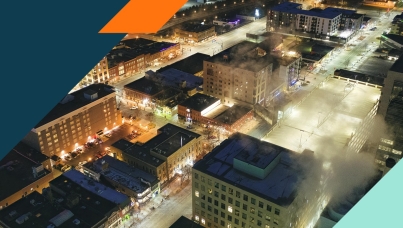The link between media consumption and public opinion
We live in two Americas.
Partisanship has created a deep divide among Americans on politics and beyond. However, beneath partisanship, media source is also significantly correlated with Americans’ views.
Americans’ primary news source plays into what they believe to be true, their own daily personal economic situation, and ultimately, how they view former President Donald Trump and Vice President Kamala Harris.
Below are five charts on how news source affects Americans’ views on the issues and how this might affect the 2024 election.
- The biggest problem depends on who you ask. The main issue is vastly different depending on where Americans get their news, particularly at the edges. For viewers of Fox News or Conservative media outlets like Breitbart and Newsmax, it’s immigration. For Cable News or National Newspaper consumers, it’s political extremism and threats to democracy. We live in a nation with multiple realities.
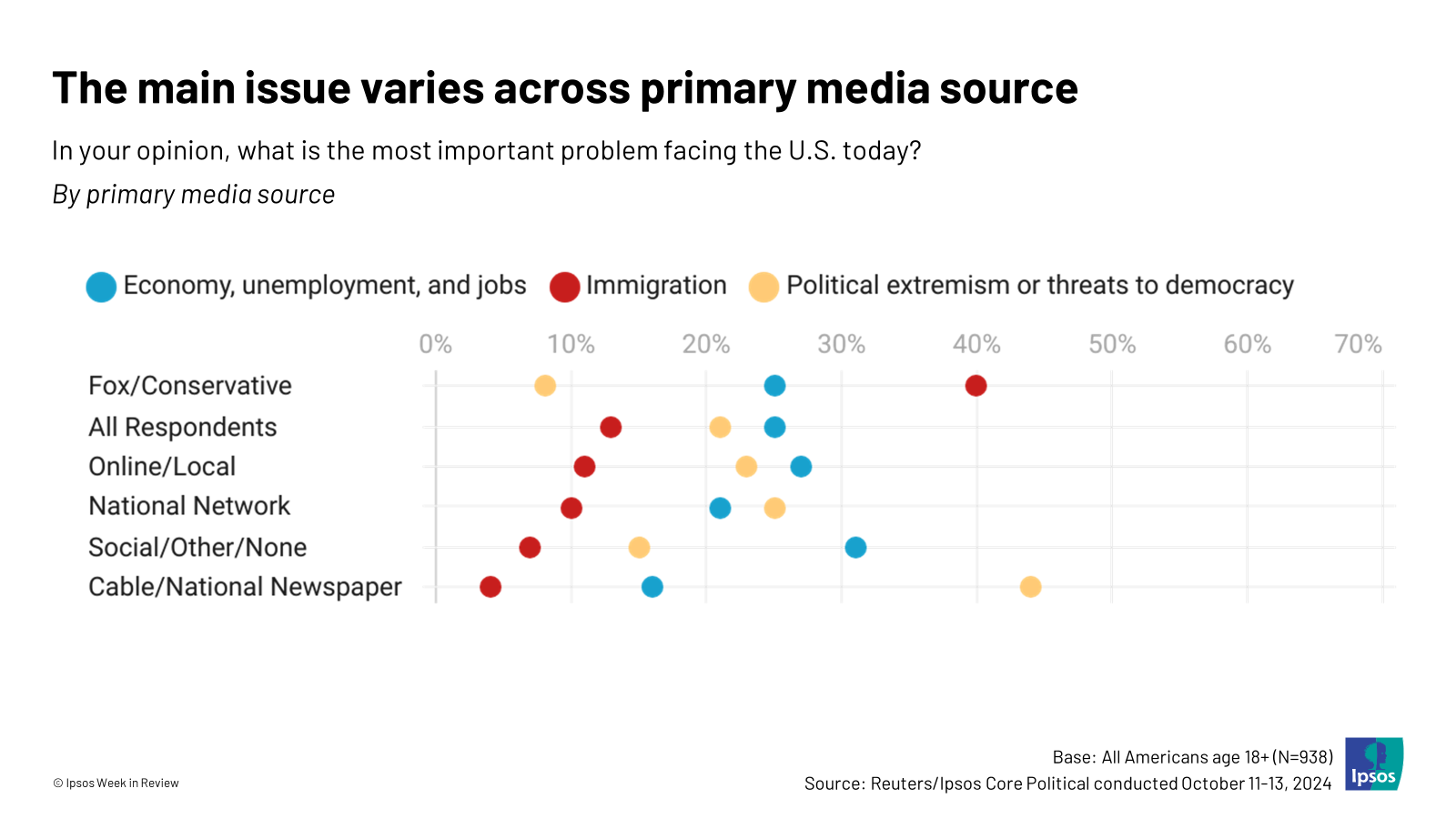
- Sometimes misinformed views of reality. Media source also affects people’s understandings of what’s true or not. Notably, Americans who primarily get their news from Fox News and Conservative Media and social media/other are more likely to answer questions about inflation and crime incorrectly than Americans writ large. On the other hand, in May, Ipsos polling found that Cable News/National Newspaper consumers were less likely to answer questions about the level of border crossing correctly. This is the information landscape we live in.
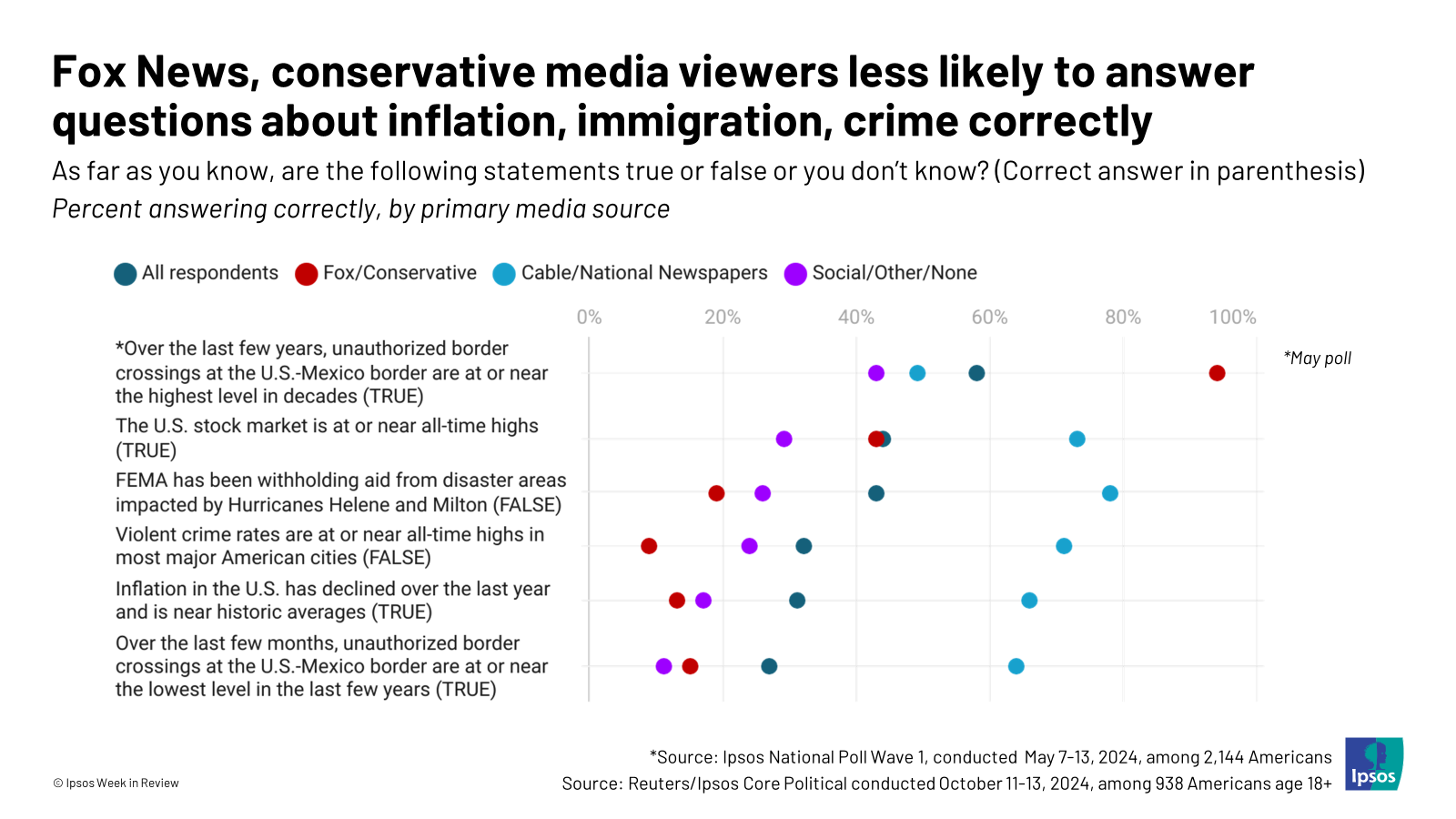
- Media source also affects people’s perceptions of their daily costs. Consumers of Fox News or Conservative Media are the least likely to say they have seen grocery or gasoline costs go down. With inflation and the economy being the potential decider of this election, this is impactful.
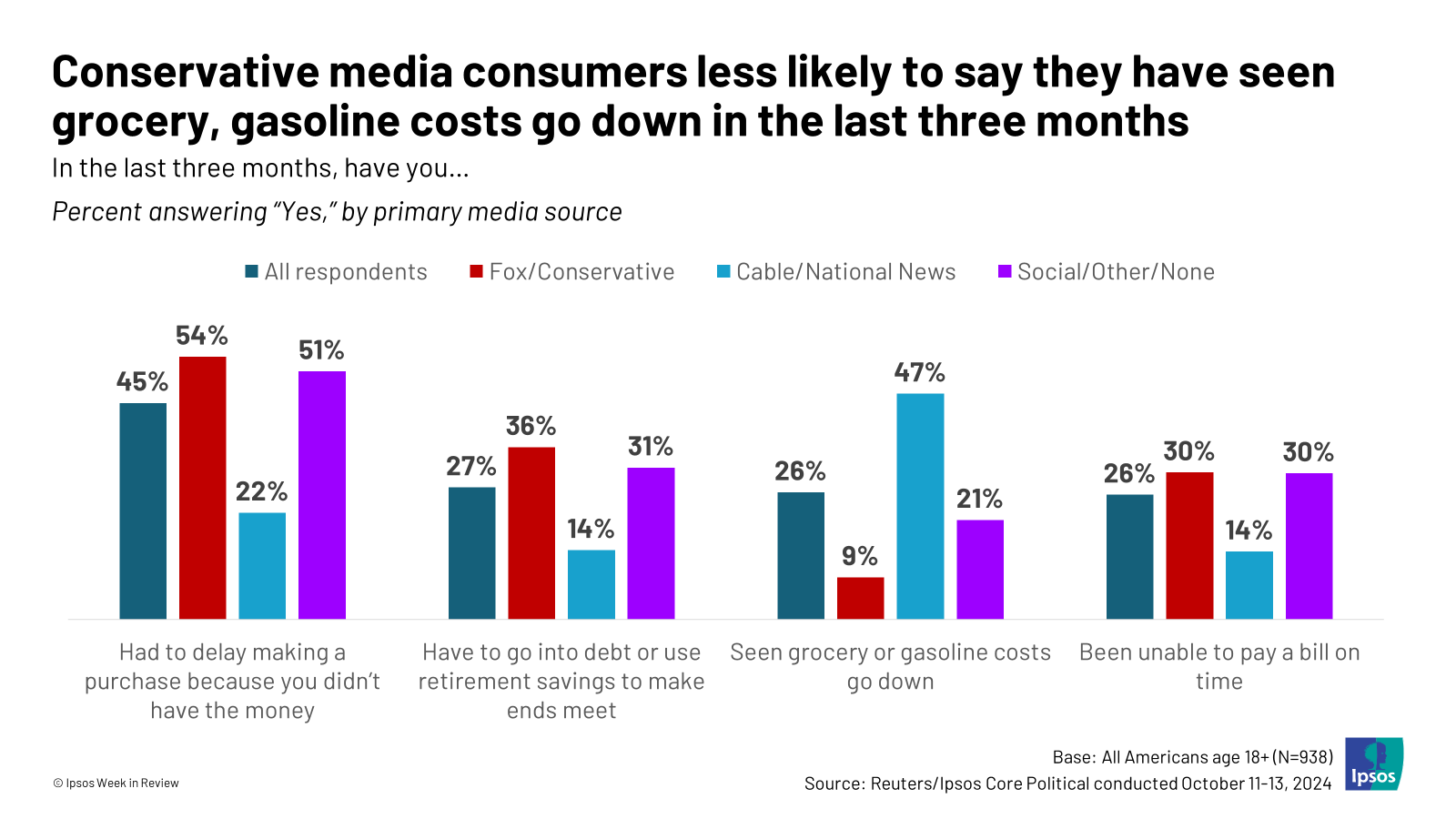
- Misperceptions about the issues affect Americans’ views of the candidates. Americans who answer questions about inflation incorrectly are more likely to prefer Trump over Harris on the economy. The same pattern holds true on immigration and crime.
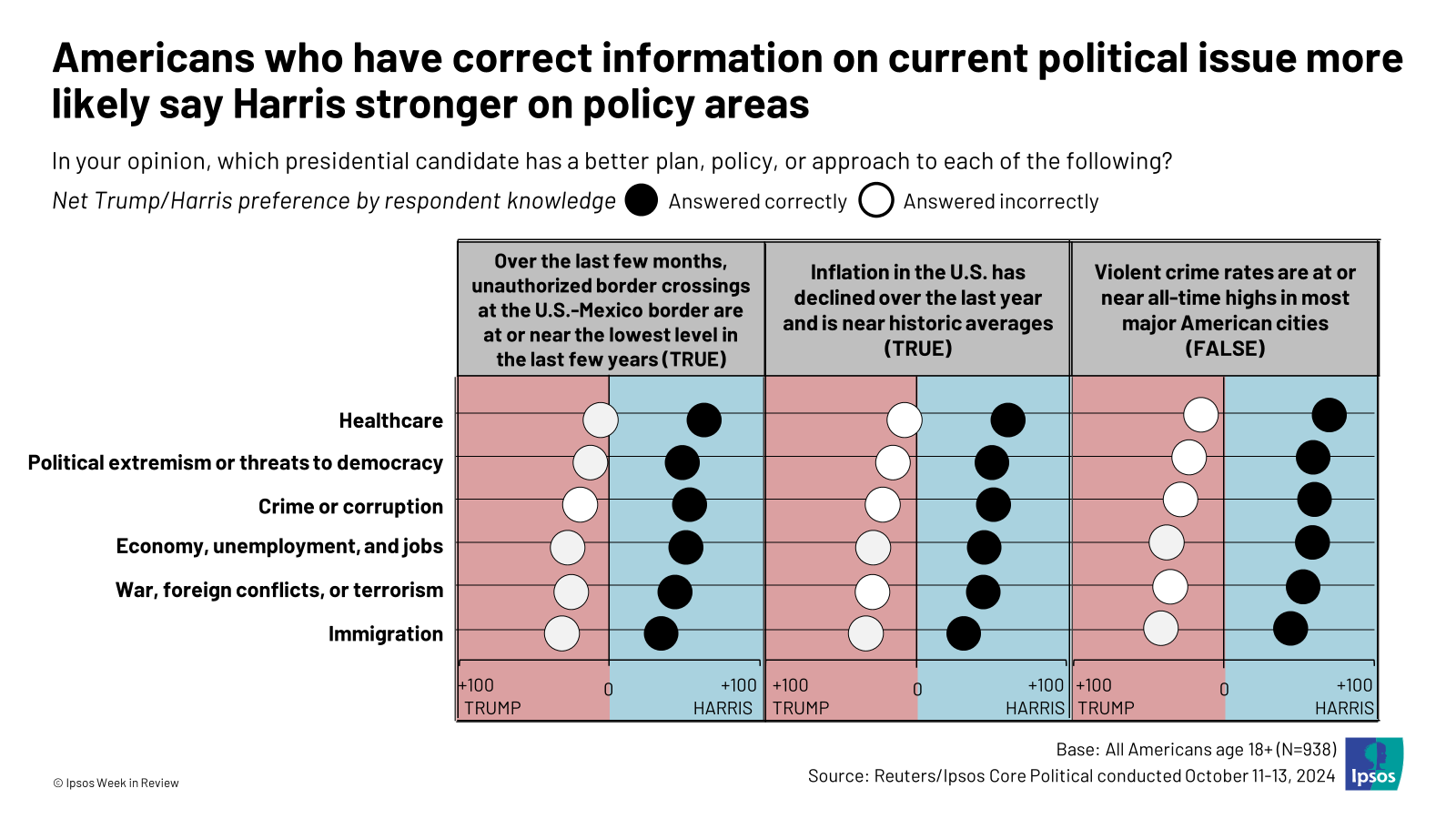
- Diverging realities ultimately affects ballot choices. Americans who answer questions about inflation, crime, and immigration incorrectly are more likely to opt for Trump, while Americans who answer those questions correctly prefer Harris.
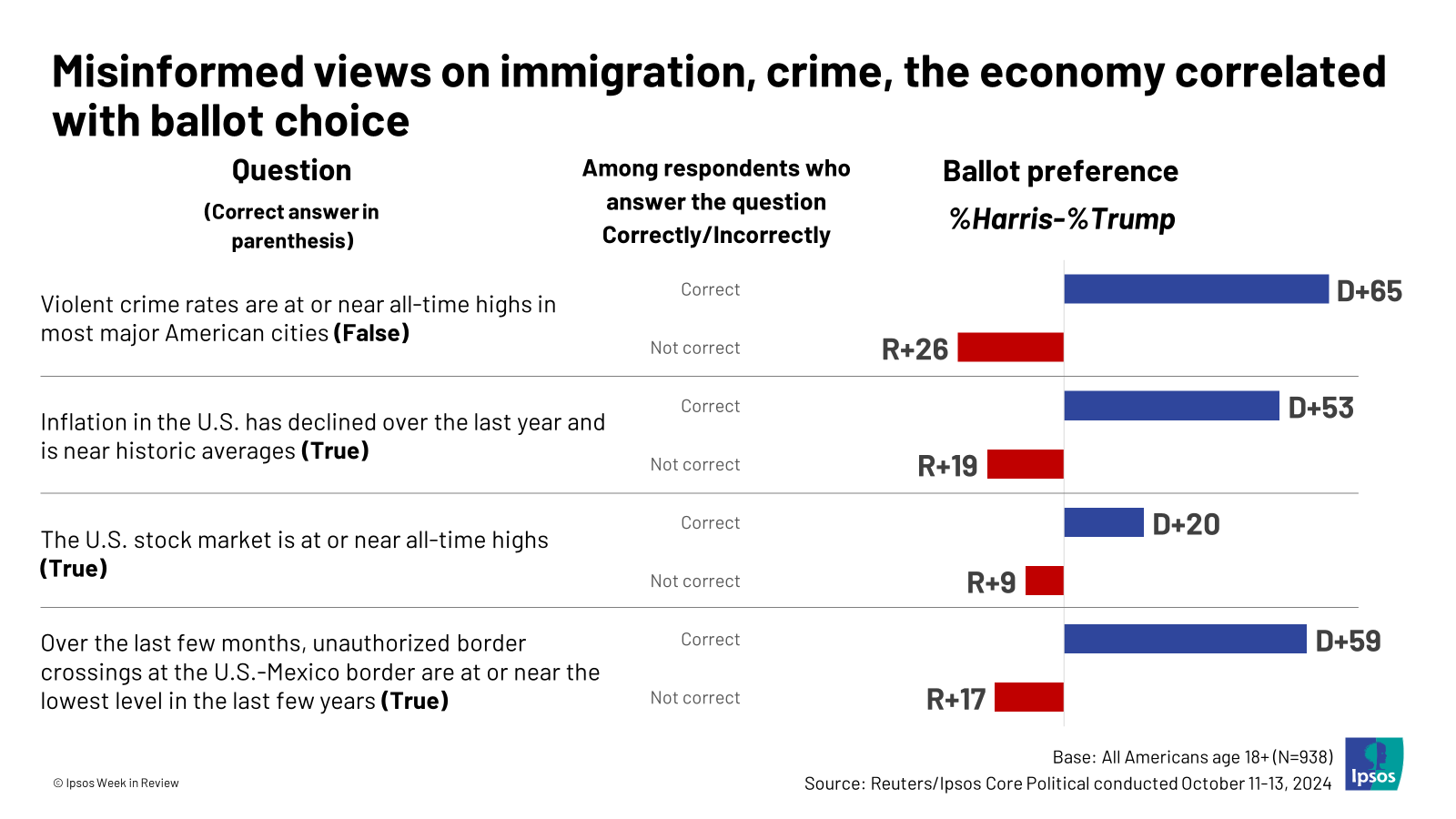
It shouldn’t be any surprise that today’s media landscape is polarized, particularly at the edges. This isn’t without consequence. The end result is that Americans feel that crime, immigration, and the economy are all worse than they actually are. This will affect the election. Watch this space.

